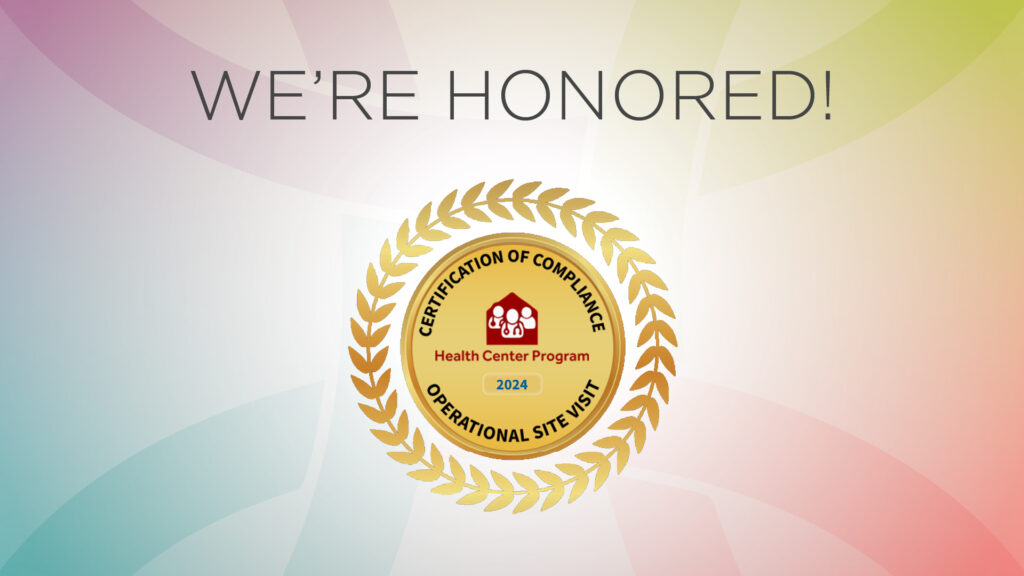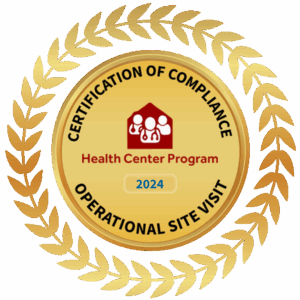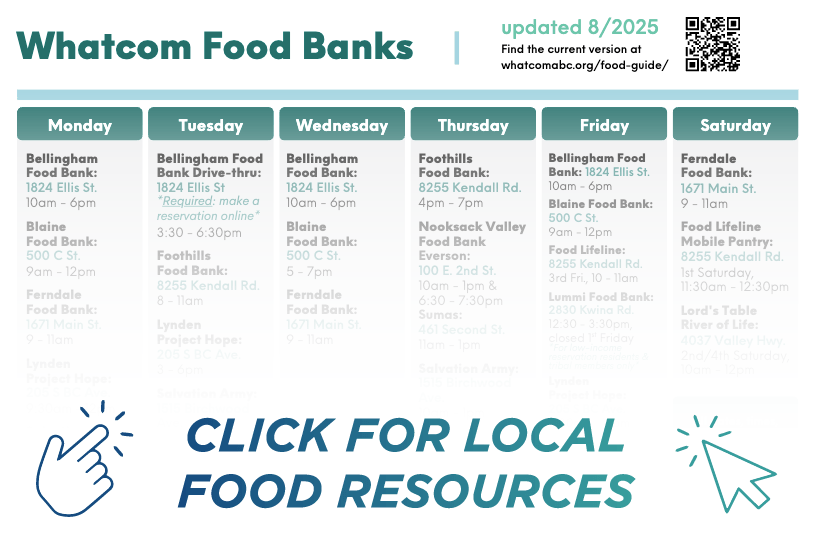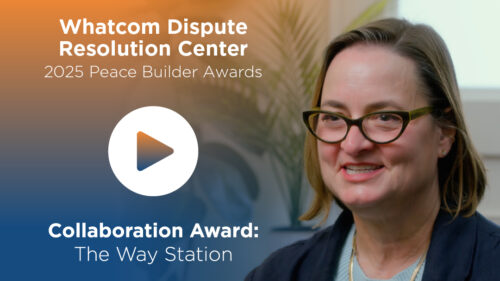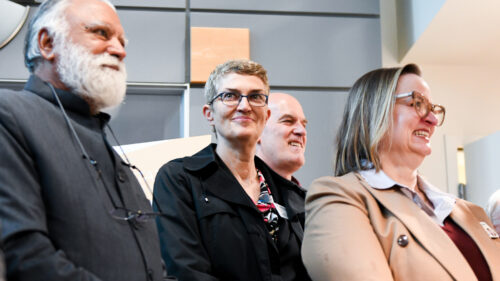
Jodi at The Way Station ribbon cutting ceremony in 2024.
After six years of dedicated service, Unity Care NW announces that CEO Jodi Joyce will retire later this year. Jodi joined Unity Care NW just one month before the COVID-19 pandemic began and has led the organization through one of the most challenging and transformative periods in health care.
Under Jodi’s leadership, Unity Care NW experienced significant growth, expanding care 26% to 24,750 patients annually, strengthening services, and deepening its role as a trusted safety-net provider in Whatcom County. During her tenure, the organization significantly strengthened its financial position, achieving a 7% growth in net income, a 45% increase in annual revenue, and a 61% growth in fund balance and assets. Through disciplined financial management and strategic growth, Unity Care NW is now well positioned for long-term sustainability and continued investment in its mission — to increase the years of healthy life in the people and communities they serve.
Jodi also led major organizational modernization efforts, including the successful transition to Epic electronic medical record (EMR) software. This system upgrade significantly improved care coordination and information-sharing across providers in the region, supporting more integrated, patient-centered care.
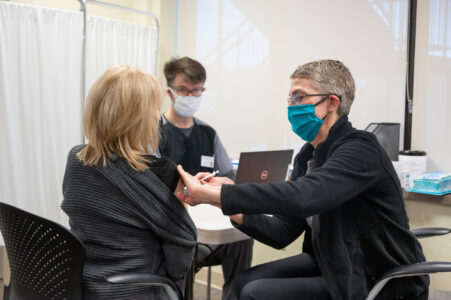
Jodi volunteering in Unity Care’s vaccine clinic, personally administering vaccines alongside clinical staff.
During the COVID-19 pandemic, Jodi led Unity Care NW’s response while overseeing the rollout of a large-scale vaccination effort that served both patients and the broader community. To date, Unity Care NW has administered 17,860 COVID-19 vaccines, helping protect thousands of community members. As a registered nurse, Jodi also volunteered directly in Unity Care’s vaccine clinic, personally administering vaccines alongside clinical staff.
Jodi’s tenure also included the opening of The Way Station Health & Hygiene Center, a first-of-its-kind facility in Whatcom County providing essential health, hygiene, and supportive services for people experiencing homelessness — an important milestone in Unity Care NW’s commitment to health equity.
In addition, Jodi guided the development and implementation of Unity Care NW’s current
strategic plan, which centers on three core priorities: Enhancing and Expanding Patient Services, Strengthening the Organization’s Business Model, and Maximizing Resources and Facilities to support long-term sustainability and growth.
“Being a part of Unity Care NW has been a true honor and the highlight of my career,” Joyce said. “I have never worked with such a strong group of values-driven, mission-oriented individuals so deeply committed to serving with compassion and excellence.”
The Unity Care NW Board of Directors has begun a thoughtful leadership transition process. The Board’s Executive Committee is forming a CEO Search Committee, supported by HR Director Danielle Crim and local HR consultant Kara Turner. The search is expected to take approximately four to six months.
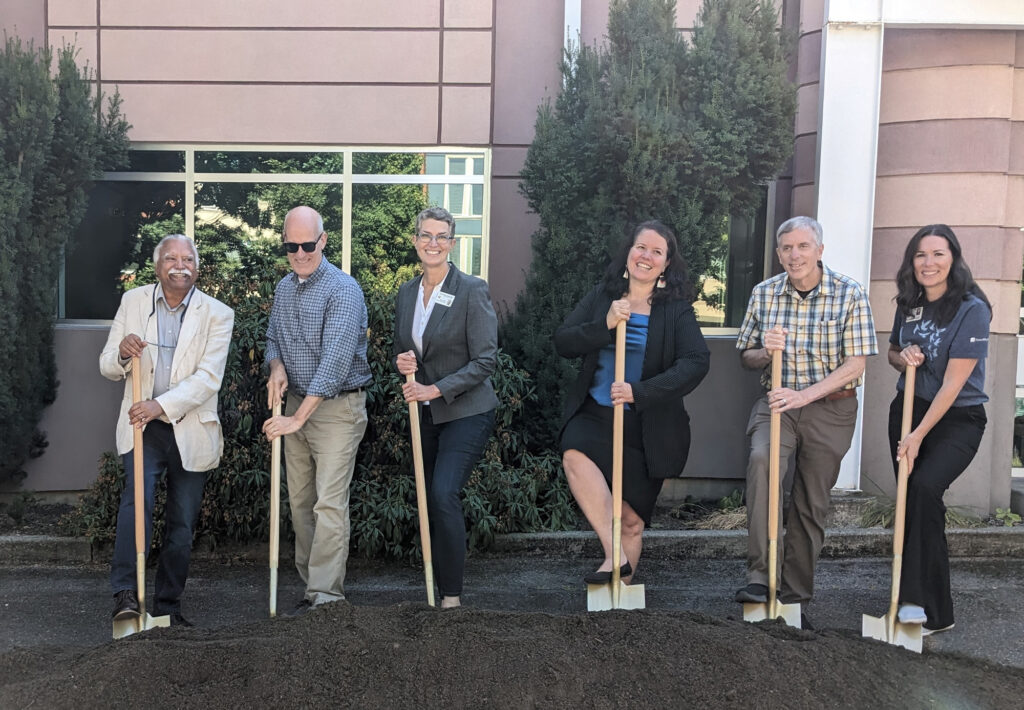
Left to right: County Executive Satpal Sidhu, Representative Rick Larsen, Jodi Joyce, Senator Sharon Shewmake, Greg Winter and Rachel Lucy at The Way Station’s Groundbreaking Ceremony in 2023.
“While the Board will miss Jodi’s leadership,” Unity Care NW Board President, Jennifer Moldver said, “we fully support her decision to retire. Over the past six years, Jodi has guided Unity Care NW through a period of significant challenge and transformation, strengthening the organization and leaving it in a very strong financial position, well positioned for the future.”
While the search takes place, Joyce will remain fully engaged in her role, partnering closely with Unity Care NW’s leadership and staff to advance organizational priorities and ensure a smooth transition.
“Over this period of time, I look forward to partnering with our leaders and teams on our priorities, to ensure Unity Care NW is ‘ship shape’ as a new leader comes onboard,” Joyce shared.
“Unity Care’s future is bright, and I am incredibly grateful to have played a role in its latest chapter.”
